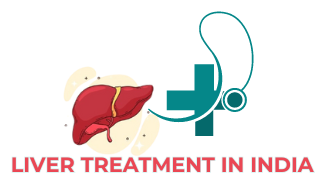How Can You Improve Your Liver Health Through Exercise?
Benefits Of Regular Physical Activity For The Liver are massive for those who are dealing with liver issues, as liver health is an essential component of overall well-being. The liver is essential for metabolism, detoxification, and the control of many body processes. But diseases like cirrhosis, hepatitis, or fatty liver disease can impair its performance. It becomes essential in this situation to comprehend the connection between physical activity and liver health. Regular physical Exercise for fatty liver and other liver diseases has the ability to slow down the evolution of liver disorders, reduce symptoms, and enhance overall quality of life for those who suffer from them.
Understanding the Benefits Of Regular Physical Activity For The Liver-Bursting The Myth Of ‘Can Exercise Damage The Liver?’
Exercise for fatty liver and other liver diseases has long-reaching implications for general health and well-being that go far beyond physical fitness. In particular, researchers at liver hospital and liver expert doctors are paying more and more attention to the effects of exercise on liver function. The liver is an essential organ that performs a multitude of metabolic tasks. It can develop a number of disorders, such as cirrhosis and fatty liver disease, both of which can have fatal outcomes if neglected. Given the increased incidence of liver-related diseases worldwide, it is critical to comprehend the Benefits Of Regular Physical Activity For The Liver health.
Liver Function: Enhanced Blood Flow and Oxygen Delivery
- Our heart rates rise during physical exertion, which causes the body to pump more blood throughout. The liver gains from the enhanced circulation as well because it gets more blood that is rich in oxygen.
- For the liver to efficiently carry out its many tasks, such as metabolizing nutrients and excreting poisons, oxygen is essential.
- The liver can perform at its best with better oxygen flow, which helps with cleansing and general metabolic efficiency.
- Furthermore, exercise-induced increased blood flow to the liver facilitates the liver’s detoxification of waste materials and poisons.
- Improved blood circulation lowers the risk of liver illness and damage by eliminating toxic compounds that could build up in the liver.
- Thus, regular exercise supports the liver’s vital function in preserving general health by acting as a natural detoxifier.
- Exercise for fatty liver additionally aids in the management and prevention of diseases like fatty liver disease, which is defined by liver treatment doctors as the buildup of fat in the liver cells.
- Exercise for fatty liver helps prevent the formation of fatty liver disease and, in certain cases, reverse its course by encouraging weight loss and lowering visceral fat.
- This process is greatly aided by improved oxygen and blood flow to the liver, which promote fat metabolism and inhibit fat buildup in the liver tissue.
Liver Function: Weight Management and Metabolic Health
- Non-alcoholic fatty liver disease (NAFLD), which is defined by liver treatment doctors as the buildup of fat in the liver and can cause inflammation and scarring, is closely associated with obesity and excessive weight gain.
- Frequent exercise lowers the chance of developing NAFLD and other obesity-related liver diseases by burning calories and encouraging fat loss, which helps with weight management.
- Improve Your Liver Health Through Exercise also helps in improving glucose utilization and insulin sensitivity, both of which are essential for preserving metabolic health.
- Insulin resistance is a characteristic of obesity and metabolic syndrome that aids in the development of liver illnesses such steatohepatitis and non-alcoholic fatty liver disease (NAFLD).
- Exercise lowers the risk of issues connected to insulin resistance and helps prevent the buildup of fat in the liver by increasing insulin sensitivity.
- Exercise has several other advantages for liver function besides helping with weight management and metabolic health.
- Engaging in physical exercise stimulates blood circulation, which supplies oxygen and nutrients to the liver cells and facilitates the elimination of waste materials and toxins.
- Can exercise damage the liver?–Additionally, it lessens inflammation everywhere in the body, including the liver, which lowers the chance of liver damage and the advancement of the disease.
- Moreover, aspartate aminotransferase (AST) and alanine aminotransferase (ALT), two liver enzymes that are indicators of inflammation and injury to the liver, can be reduced by frequent exercise.
- Exercise implies enhanced liver function and general health by raising liver enzyme levels.
Liver Function: Immune System Support In Liver Diseases
It has been demonstrated at the best liver transplant hospital that Improve Your Liver Health Through Exercise also improves immune function by boosting immune cell circulation throughout the body.
- These immune cells—which also include cytokines, white blood cells, and antibodies—are essential for protecting the body from infections and illnesses, particularly liver-related ones.
- People can lower their risk of liver infection and inflammation by strengthening their immune system through frequent moderate-intensity exercise.
- Exercise also aids in the body’s reduction of inflammation, which is very advantageous for the health of the liver.
- A common underlying cause of many liver diseases, including cirrhosis, hepatitis, and fatty liver disease, is chronic inflammation.
- People can reduce their body’s levels of inflammatory markers by exercising regularly, thereby lowering the chance of liver damage and the advancement of the illness.
- Anti-inflammatory cytokines are also produced in greater quantities during exercise, which serves to reduce inflammation and shield liver tissue from harm.
- Exercise for fatty liver is important for maintaining metabolic health, which is directly related to liver function, in addition to boosting immune system and lowering inflammation.
- Frequent Exercise for fatty liver supports healthy cholesterol levels, insulin sensitivity, and blood sugar regulation—all of which are critical for liver function.
- An individual’s chance of acquiring disorders like insulin resistance and non-alcoholic fatty liver disease (NAFLD), which can result in more serious liver consequences if left untreated by the liver expert doctors, can be decreased by exercising and keeping a healthy weight.
Types of Best Exercise For Liver Disease that Supports Liver Health
Although food choices are frequently highlighted in talks about liver health at the best liver transplant hospital, regular exercise can greatly enhance liver function and lower the chance of liver-related illnesses. Exercises that improve blood circulation, lower inflammation, and help with weight management can all have a favourable effect on liver health. These exercises can include aerobic work as well as strength training and flexibility exercises. Looking to Improve Your Liver Health Through Exercise and well-being, one must comprehend the wide range of workouts that support liver health.
Aerobic Exercise To Improve Liver

Enhancing metabolic function is one of the main ways that aerobic exercise promotes liver health. People who participate in aerobic exercises like swimming, cycling, or jogging experience an increase in oxygen intake and energy expenditure in their bodies. Increased metabolic activity lowers the likelihood of insulin resistance, which is a prelude to non-alcoholic fatty liver disease (NAFLD). Improve Your Liver Health Through Exercise also helps in insulin sensitivity and glucose management. Aerobic exercise is one of the Best exercise for liver disease, also facilitates the breakdown of triglycerides that are deposited in liver cells, which reduces fat buildup and stops the development of hepatic steatosis.
TIPS FOR A HEALTHY LIVER: IMPROVING HEART HEALTH AND STAMINA WITH AEROBIC EXERCISES

Weightlifting, resistance band training, and bodyweight exercises are examples of strength training exercises that are one of the Best exercise for liver disease which activate the body’s musculature and cause modifications beyond the growth of new muscles. Research at the liver hospital has shown that resistance training results in metabolic adaptations, including enhanced glucose metabolism and insulin sensitivity, which are critical in reducing the risk factors linked to non-alcoholic fatty liver disease (NAFLD) and non-alcoholic steatohepatitis (NASH). Strength training helps control blood sugar levels by improving insulin sensitivity. This lessens the load on the liver to process excess glucose, which is a factor linked to the development of liver illnesses.
TIPS FOR A HEALTHY LIVER: BUILDING MUSCLE MASS AND STRENGTH
- Stimulating the growth and adaptation of muscle fibers in response to external stressors is one of the main goals of strength training.
- This adaptation happens through a process called muscular hypertrophy, in which, when exercising, the muscle fibers injure themselves tiny and then rebuild themselves to grow bigger and more powerful.
- A key component of this process is progressive overload, which is attained by progressively increasing the volume, resistance, or intensity of exercises over time.
- By gradually increasing the weight or resistance applied to the muscles, people can maximize their strength potential by continuously stimulating growth and development.
- Strength training has numerous health and well-being Benefits Of Regular Physical Activity For The Liver are beyond just encouraging muscular growth. It can assist increase joint stability and mobility, lower the risk of osteoporosis, and increase bone density.
Flexibility and Balance Training For A Healthy Liver

While balance training focuses on enhancing stability and coordination, flexibility exercises stretch and lengthen muscles. Through a variety of methods, both types of exercise are one of the Best exercise for liver disease that improves overall physical fitness and have a good effect on liver health.
TIPS FOR A HEALTHY LIVER: ENHANCING FLEXIBILITY, RANGE OF MOTION, AND STABILITY
- Enhancing range of motion and flexibility in muscles and joints is one of the main Benefits Of Regular Physical Activity For The Liver are of flexibility training.
- Frequent stretching exercises improve suppleness and target specific muscle areas to release tension. This improved flexibility lowers the chance of damage during physical activity and improves sports performance by enabling more efficient movements.
- Increased flexibility makes daily tasks easier and more comfortable, whether it’s reaching up high on a shelf or bending to tie shoelaces.
- Furthermore, balancing exercise is essential for improving coordination and stability. Exercises for balance test the body’s ability to maintain balance by using a variety of muscles and brain connections.
- People who advance in their balancing exercises have greater proprioception—the body’s sense of its position in space—and become more adept at controlling their motions.
- This increased stability improves athletic performance in sports and other activities requiring precise movements and coordination, including dance, while also decreasing the risk of falls and accidents.
Tips for a Healthy Liver: Individualized Exercise Plans
A growing amount of focus has been placed on the necessity of Best exercise for liver disease in fostering general health and well-being in recent years. In particular, individualized exercise regimens have become a viable means of improving liver function. It is essential to the body’s overall health that it functions at its best. A targeted strategy by the liver treatment doctors for improving liver health is to customize exercise regimens to individual’s needs, keeping in mind the characteristics including fitness level, medical history, and specific liver diseases. By implementing targeted exercise regimens that include resistance, flexibility, and aerobic training, people may be able to reduce the risk of liver-related problems, improve metabolic health, and promote long-term well-being.
Customizing Exercise Regimens Based on Health Status and Fitness Level
- Gentle yoga, swimming, and other low-impact exercises can be helpful for people whose liver health is damaged. These exercises lessen the strain on the liver and increase circulation, which supports detoxification.
- Furthermore, strengthening the core with resistance exercise can aid support the liver’s processes and help with posture.
- Customizing workout routines also heavily depends on one’s level of fitness. When their endurance improves, beginners can progressively raise the intensity of their aerobic exercises.
- Intermediate and advanced practitioners might use circuit training or high-intensity interval training (HIIT) to push their bodies while taking their liver health into account.
- Personalized exercise plans require consultation with healthcare specialists, such as physiotherapists or liver treatment doctors.
- These liver expert doctors can offer advice based on specific medical issues, guaranteeing safe and efficient exercises designed to enhance liver health and general fitness levels.
- Over time, changes in liver health status and fitness levels may require regular monitoring and modifications to the exercise plan.
Gradually Increasing Exercise Duration and Intensity
- The body can adjust gradually by beginning with a mild workout program and steadily increasing both the duration and intensity. This reduces the chance of strain and damage.
- Easy exercises like cycling, swimming, or walking can be great places to start, and they can be gradually increased in duration over time.
- Running and high-intensity interval training (HIIT) are examples of more strenuous workouts that can be added as fitness levels rise to further improve liver function by increasing metabolism and encouraging fat reduction.
- When it comes to enjoying the advantages of exercise for liver health, consistency is essential.
- As advised by health guidelines at the best liver transplant hospital, try to get at least 150 minutes a week of moderate-intensity aerobic activity or 75 minutes of vigorous-intensity exercise.
- Strength training exercises can also be added to aerobic activities two or more days a week, which will help to maintain metabolic health and liver function overall.
- Before beginning any new fitness program, it is imperative to speak with a liver expert doctor, particularly if there are any underlying medical issues.
Integrating Exercise into Lifestyle for Long-Term Liver Health
Due to the liver’s critical functions in metabolism, detoxification, and nutrient storage, maintaining good liver health is essential for overall wellbeing. Frequent exercise incorporated into one’s lifestyle is one often-overlooked yet beneficial technique for supporting long-term liver health. Physical activity not only promotes cardiovascular health and weight loss, but it also has a direct effect on liver function by lowering oxidative stress, inflammation, and fat formation. With the goal of improving liver health and delaying the development of liver-related disorders over time.
Here Are Some Tips for a Healthy Liver: Establish A Regular Exercise Routine
Aerobic exercise, or cardiovascular exercise
- On most days of the week, try to get in at least 30 minutes of moderate-intensity aerobic activity.
- You can choose to jog, cycle, swim, dance, walk quickly, or use an elliptical or treadmill, among other cardio machines.
- Your workouts should begin slowly and be increased in length and intensity over time.
Strength Exercise
- Make sure to include strength training activities in your regimen two or three times a week, minimum.
- Exercises for the main muscular groups in the body, including as the arms, legs, back, chest, and core, should be prioritized.
- For workouts like squats, lunges, push-ups, rows, and overhead presses, use resistance bands, free weights, or weight machines.
- For every exercise, aim for 8–12 repetitions, and as your strength increases, progressively increase the weight or resistance.
Stretching and Flexibility
- Incorporate stretches and flexibility exercises to increase range of motion and lower your chance of injury.
- Stretch all of the major muscle groups, holding each pose for 15 to 30 seconds without bouncing throughout.
- Include exercises like Pilates or yoga in your regimen, emphasizing motions that increase flexibility and calmness.
Strengthening the Core
- Good posture and spine support can be achieved with strong core muscles.
- Incorporate abdominal-focused exercises like leg raises, crunches, and planks.
- For every core exercise, aim for two to three sets of ten to fifteen repetitions.
Seeking Support from Liver Health Exercise Professionals or Health Coaches
- Exercise specialists with expertise in liver health can create fitness plans that support liver function while taking into account any underlying medical issues or restrictions.
- Combining resistance training, flexibility training, and aerobic exercise can improve liver function while also helping with weight loss and general fitness.
- Additionally, they can provide insightful advice on diet and lifestyle changes that support exercise programs for the best possible liver health.
- Beyond workout regimens, health coaches along with liver treatment doctors can provide all-encompassing support.
- They can impart knowledge about the significance of eating a well-balanced diet full of foods that are good for the liver, like fruits, vegetables, whole grains, and lean meats.
- They can also help with the implementation of behavior modification techniques to encourage the maintenance of healthy behaviors and remove any obstacles to improvement.
For people with liver diseases, regular exercise is essential to improving liver health. Exercise has many advantages, including lowering hepatic fat formation, enhancing insulin sensitivity, and boosting general wellbeing. People can potentially slow down the evolution of liver disorders and effectively manage their liver ailments by adopting a customized fitness plan. Seeking individualised advice and all-encompassing treatment, think about seeking advice from the skilled liver expert doctors and medical staff. Jaslok Hospital, best liver hospital in Mumbai, India, with its cutting-edge facilities and specialist knowledge, is dedicated to helping people achieve the best possible liver health and general well-being.

